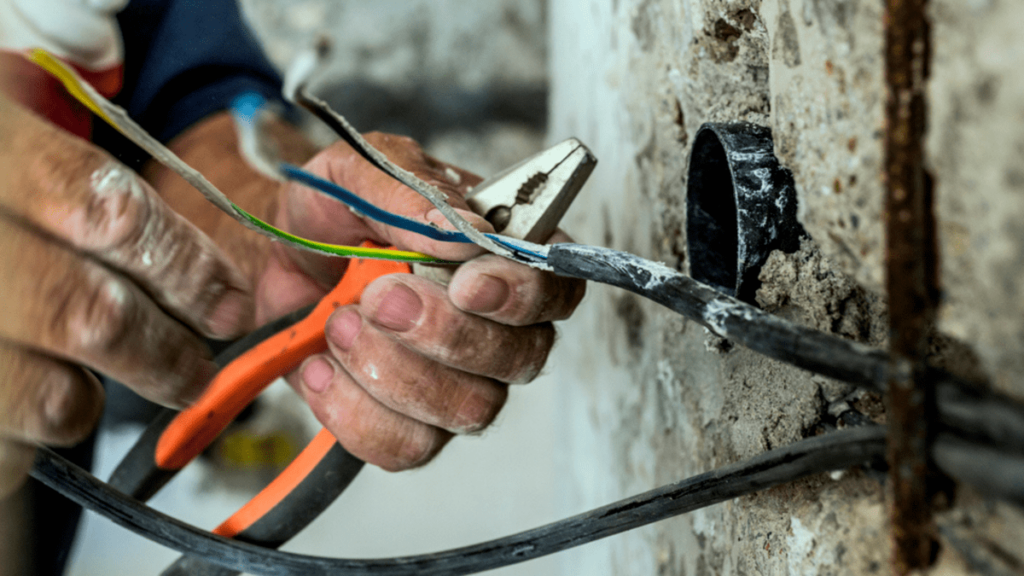- News
- The Shocking Truth About Michigan Workplace Electrocutions
The Shocking Truth About Michigan Workplace Electrocutions

You probably recall the high-profile electrocution of an American tourist in a hot tub at a Mexican beach resort that made national headlines last month. But it may come as a shock to learn that fatal electrocutions are also quite common right here in Michigan. Consider just a few such incidents where unsuspecting individuals suffered severe injuries or even tragically died due to poor maintenance, unsafe working conditions, or other circumstances that exposed them to high-voltage electricity on the job and elsewhere across the state:
- An unfortunate Michigan farmer died when a badly maintained welding machine exposed him to 240-volt power as he was attempting to repair a piece of agricultural equipment.
- A middle school student from Washtenaw County died three days after being shocked by coming into contact with a fence that had been electrified due to worn wiring in a football field light pole at Lincoln High School’s stadium.
- An electrical lineman from South Lyon died when he touched a downed power line while attempting to restore electricity to Brighton DTE Energy customers following an outage.
- A teenaged girl in Monroe picked up what she thought was a fallen branch in her backyard following a storm, only to be electrocuted by what was actually a broken power line.
- A Michigan eavestrough installer was killed when his 30-foot ladder came into contact with a 7,200-volt power line on a residential jobsite.
- Two brothers were hospitalized after their sailboat’s mast hit an energized power line that was feeding a home near a Southwest Michigan lake.
- A local contractor died while attempting to extinguish a fire caused when his boom truck accidentally snapped a power pole and a 7,200-volt electric line energized the vehicle and ignited two of its tires.
- A Warren boy was badly burned but fortunately survived electrocution when he was rescued by two city police officers who courageously dragged him off of a live wire.
Those tragedies are just some of the electrocutions that have taken place across the state in recent years. In fact, electrocutions are so commonplace that Michigan State University’s College of Human Medicine maintains a detailed database describing dozens of these types of shocking events to help inform future doctors about why such incidents occur, so they can better understand how to effectively treat victims of electrical accidents.
What Causes Electrocutions?
As you might imagine, there are numerous circumstances that can lead to people being accidentally exposed to high-voltage electricity. Wear-and-tear on insulated wire (as happened in the Lincoln High School incident), downed power lines due to intense storms or vehicle collisions, improper equipment maintenance, unsafe work practices, careless or substandard electrical work, and many more situations have resulted in tragedies statewide.
Sometimes it can even happen by complete surprise. A frightening phenomenon known as “arc flash” – which resembles a man-made bolt of lightning – causes numerous injuries and deaths every day across the United States when supercharged electric power unexpectedly jumps from an energized source through the air to the ground. The Michigan Occupational Safety and Health Administration (MIOSHA) says that arc flash can result from a number of different causes, including: “1) coming close to a high-amp source with a conductive tool or body part; (2) dropping a tool or otherwise causing a short circuit; (3) equipment failure due to use of substandard parts, improper installation, or even normal wear and tear; (4) breaks or gaps in insulation; or (5) dust, corrosion, or other impurities on the surface of the conductor.”
Another surprising potential cause of electrocutions is the improper installation or maintenance of electrical sources which can “leak” power on or near bodies of water. The Michigan Department of Natural Resources warns boaters that it’s quite possible to be shocked near marinas, piers, or docks situated in the state’s many lakes, ponds, creeks or rivers – which can subsequently lead to drowning incidents that are initially started by electrocution.
What Happens to The Human Body When It’s Electrocuted?
Electrical current coursing through the human body may result in severe burns; it can essentially “cook” organs and tissues inside the body; it could lead to extensive nerve damage; and it might result in ventricular fibrillation that stops the heart from beating. Experts at Hydro Québec (a Canadian power generation company) note that electrocutions can also cause muscle spasms, cardiac arrest, burns outside and within the human body, severe scarring, kidney damage, and even subsequent cataracts in the eyes. MIOSHA states that because “electricity always follows the shortest circuit and path of least resistance,” it can often “flow to ground or complete a circuit through the (human) body.”
Incidentally, it isn’t only exposure to high-voltage power lines that can lead to significant damage from electric shock. MIOSHA warns that deaths have resulted from as little as 120 volts of alternating current (AC) in home-related electrocutions, and states that as few as 42 volts of direct current (DC) – which can come from such everyday power sources as banks of multiple 12-volt batteries used in golf carts – have caused fatal injuries.
How Can You Prevent Electricity-Related Injuries or Deaths?
As we noted in a recent article describing the dangers from workplace explosions, there are definitely ways you can protect yourself and others from these kinds of incidents. Following proper work safety procedures regarding electricity at your place of employment is a good way to start. Trying to “shortcut” a wiring job could lead to a deadly short circuit in the future! Our first piece of advice is to report any unsafe conditions – including frayed wires, worn insulation, damaged equipment, inadequate power supply cables, the improper use of power bars or extension cords, even fleeting “burnt-wire” odors – to your supervisor, your union steward or another responsible individual immediately when you observe them. If your company has a safety committee, let it know about any unsafe conditions you’ve observed. In every case, document your safety concerns in writing, and take detailed notes about what you said, to whom you said it, and when you did so. Building a solid paper trail can help make your case if you ever need to appoint an attorney specializing in electrocution incidents to protect your legal rights and represent you in a personal injury lawsuit to seek fair compensation if you’ve been hurt in an electrical incident through no fault of your own.
In addition, if you’re ever injured at work or in a job-related incident, Michigan law requires most employers to protect you from lost income by providing worker’s compensation insurance. But a few types of businesses are exempt from that requirement, and there are always companies that attempt to avoid their responsibilities, so check with us and we can help you decide how to best proceed in your specific situation if you’re ever injured on the job and are having difficulties obtaining worker’s comp, or if you find yourself in need of legal representation for a work-related personal injury lawsuit. To reach us immediately, call 855-MIKE-WINS (855-645-3946), or click here to complete our free online case evaluation form.

Content checked by Mike Morse, personal injury attorney with Mike Morse Injury Law Firm. Mike Morse is the founder of Mike Morse Law Firm, the largest personal injury law firm in Michigan. Since being founded in 1995, Mike Morse Law Firm has grown to over 200 employees, served 40,000 clients, and collected more than $1.5 billion for victims of auto, truck and motorcycle accidents. The main office is in Southfield, MI but you can also find us in Detroit, Sterling Heights and many other locations.









